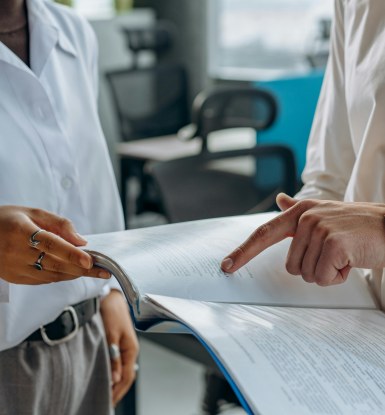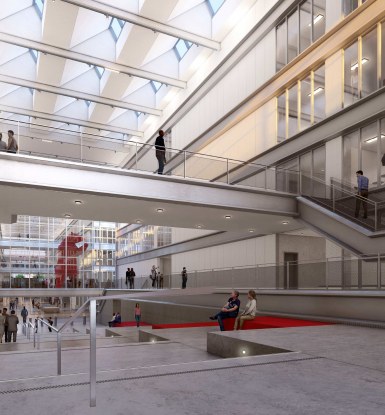Almost 3 years in the making, the HDMI GO is an optional learning opportunity offered to students of the emlyon business school MSc in Health Management & Data Intelligence. A broad range of start-ups are invited to propose real-life cases concerning their very own business to student teams. Each team then spends the next 6 weeks working on a plethora of business and marketing data in a consultancy set-up to provide their own recommendations, whilst learning on the job in direct contact with the corporate world. Professionalization of business students at its very best.
What were the academic context and objectives for proposing this scheme to students and companies?
Florencio Travesio (MSc Program Director): We were seeking a win-win situation for the students, companies, and the business school. This consulting project enables us to align our program with the needs of the marketplace, assist companies in sharing issues and receiving feedback, and enrich the learning process for students by increasing direct contact with the corporate world. And let’s not overlook the opportunity for potential employees and employers to showcase what they have to offer in order to get recruited or recruit! From a broader academic perspective, HMDI GO is emblematic of our drive to professionalize our students as much as possible. We want the MSc to become a business articulator and a social player, so we are pushing through research into AI, health in the workplace, power lunch breaks that bring students and companies together, and the exploration of health in space, among other initiatives.
Q. What motivates a company such as yours to get involved?
Thomas Bertinotti (Product Owner, Therapixel): We launched a breast cancer screening AI software that assists radiologists in the reading of screening mammograms in the USA and France. We therefore saw working with emlyon and its students as a means of exploring the opportunities for this product in the EU market. It proved a very positive experience for us as we were working with a team of students specialized in the business of medical devices coming from different horizons and countries and who provided us with a lot of very useful data for this target market. From the student perspective, they gained insight into AI software for medical imaging and the associated challenges. They also learned how to conduct market research in this field, skills they will no doubt use on a very regular basis over the course of their career.
Sébastien de Longeaux (Chief Operation Officer, Newclin): NewClin’s objective is to contextualize people’s health data with any behavioral, social and environmental information that can influence someone’s health. There are many such determinants of health and NewClin’s participation in HDMI GO consisted in partnering with a team of students to ensure that our database includes a maximum of scientifically proven health determinants. We are a young e-health start-up, still with limited resources. Partnering with students from the MSc was a unique opportunity to accelerate the development of our solution by adding the support of a skilled and motivated team. They were exposed to a very new and innovative concept and had to perform structured information intelligence on it. Also, it was an opportunity for the students to better understand the importance of health determinants along the entire health cycle. I believe this is an asset for the type of career they are looking at upon graduation.
As a participating student, what were the main reasons for signing up and what were the key takeaways?
Polina Kuklina (MSc HMDI student): I was looking for practical applications of the content covered in classes throughout the academic year, and I was also curious to find out more about the current projects in the e-health industry. Participating in HMDI GO offered an opportunity to collaborate with professionals in this field while benefitting from the school’s familiar learning environment. We were given several objectives and a timeline, and we organized our student team to work on different parts of the project in parallel with weekly and bi-weekly alignment meetings. Throughout the project, we were in regular contact with the company representatives who guided us, gave us feedback, and provided assistance when needed.
In terms of educational benefits, I would say this experience was a great way to complement my studies since we gained in-depth exposure to a real-life project and had a chance to contribute to it in a teamwork setting. During the project, we researched different health determinants and learned how the information about them can be collected and organized, and how this data can eventually be used to contribute to better health outcomes. Overall, it was an enriching experience that will inform my future work in collaborative projects.


